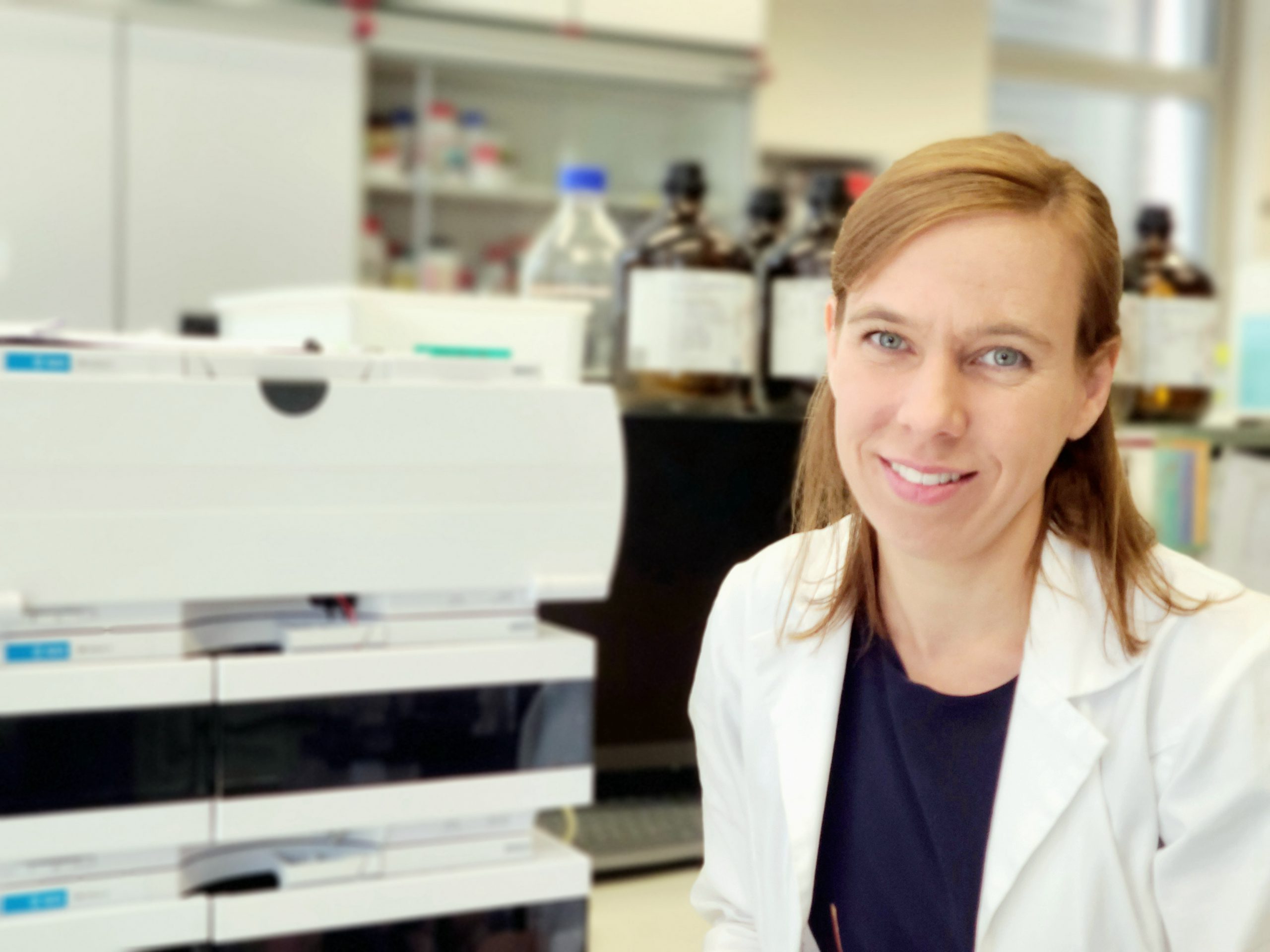
Tell us a bit about yourself
Hi, my name is Dunja and I am from Slovenia. I have a Master’s degree in Pharmacy and a PhD in Biomedicine. After completing my Pharmacy degree, I initially worked in a public pharmacy for a fulfilling year. However, my passion for learning led me to the University of Ljubljana, Faculty of Pharmacy (UL FFA), where I delved into Pharmacogenomics. After successfully completing my PhD, I spent a year as a postdoctoral fellow at the University of Oxford, where I gained new experience in advanced microscopy techniques. Currently, I am a faculty member at UL FFA teaching students the principles of clinical biochemistry and diagnostics. Additionally, I am closely involved with EATRIS as a National Coordinator of EATRIS Slovenia.
What is your role within EATRIS and what does a typical week look like for you?
I have been part of EATRIS Slovenia since 2019 when I joined the amazing team of the Erasmus+ project ADVANCE, which aimed to develop an interactive educational programme for advanced therapies. Since then, my involvement with EATRIS has encompassed various educational activities, including workshops and summer schools. Recently, I took on the role of National Coordinator of EATRIS Slovenia. Within this role, I focus on dissemination and awareness of EATRIS at the national level, aim to facilitate collaboration between different EATRIS institutions, and support activities on various research projects.
My weeks are typically atypical. I usually find myself navigating between my responsibilities as a teacher and researcher at UL FFA, and the organisational and managerial tasks for EATRIS.
What has been the highlight of your EATRIS experience so far?
The overall highlight of my experience at EATRIS has been the collaborative spirit and positive atmosphere of the organisation. It has been positively inspiring to work with enthusiastic colleagues of EATRIS. I especially remember the ADVANCE summer schools and public-private collaboration workshops organised in collaboration with UL FFA, EATRIS, Istituto Superiore di Sanità (ISS), Biocat, and Takis. These events promoted interactive educational programmes in advanced therapies and hopefully left a lasting impact on translational research.
What is translational research for you?
To me, translational research is the bridge between scientific discoveries and tangible benefits for patients. Consider children with leukaemia: while 80% of patients can achieve long-term remission with established treatments, 20% do not respond due to individual characteristics that influence susceptibility to treatment. Translational research addresses this disparity by returning to the lab to develop new drugs and formulations or identify biomarkers that can improve existing treatments. Smart research and a little bit of luck lead to new discoveries that can be translated into clinical applications that offer hope and improve the lives of these patients who do not respond to treatment.
Why did you decide to work in the translational medicine field?
For me, it was not an intentional decision to work in translational medicine, but I found myself attracted to the field after learning more. The essence of translational research lies in connecting two values that deeply resonate with me: curiosity, which drives basic research, and selflessness, a fundamental pillar of clinical practice. The ability to bridge the gap between scientific research and patient care is what has motivated me to remain committed to the field.
What advice would you give your younger self?
I would advise my younger self to focus my energy on the things I can change and let go of the things that are beyond my control. Life is full of ups and downs, and if you focus on what you can influence, you will discover a greater sense of strength and satisfaction along the way.
What do you like to do when you aren’t working?
Outside of work, I cherish moments with my family, whether it’s exploring nature, quality time at home, or visiting places. Staying active is very important to me, and I enjoy running, kickboxing, and playing various team sports. In my free time, you can sometimes find me at a social activity with my friends or playing the piano. I also find joy in attending classical concerts and visiting modern art galleries.
If you were a drug, vaccine or diagnostic, what would you be and why?
Diagnostic. Diagnostics play an important role in early detection and prevention; it gives security and allows timely intervention. I also think that diagnostic is the most proactive of the three options.
What would surprise people to know about you?
One thing you might not expect from me is that I do (kick)boxing. I’m far from being an expert, but it’s a passion that keeps me active and my husband sane. ?
















